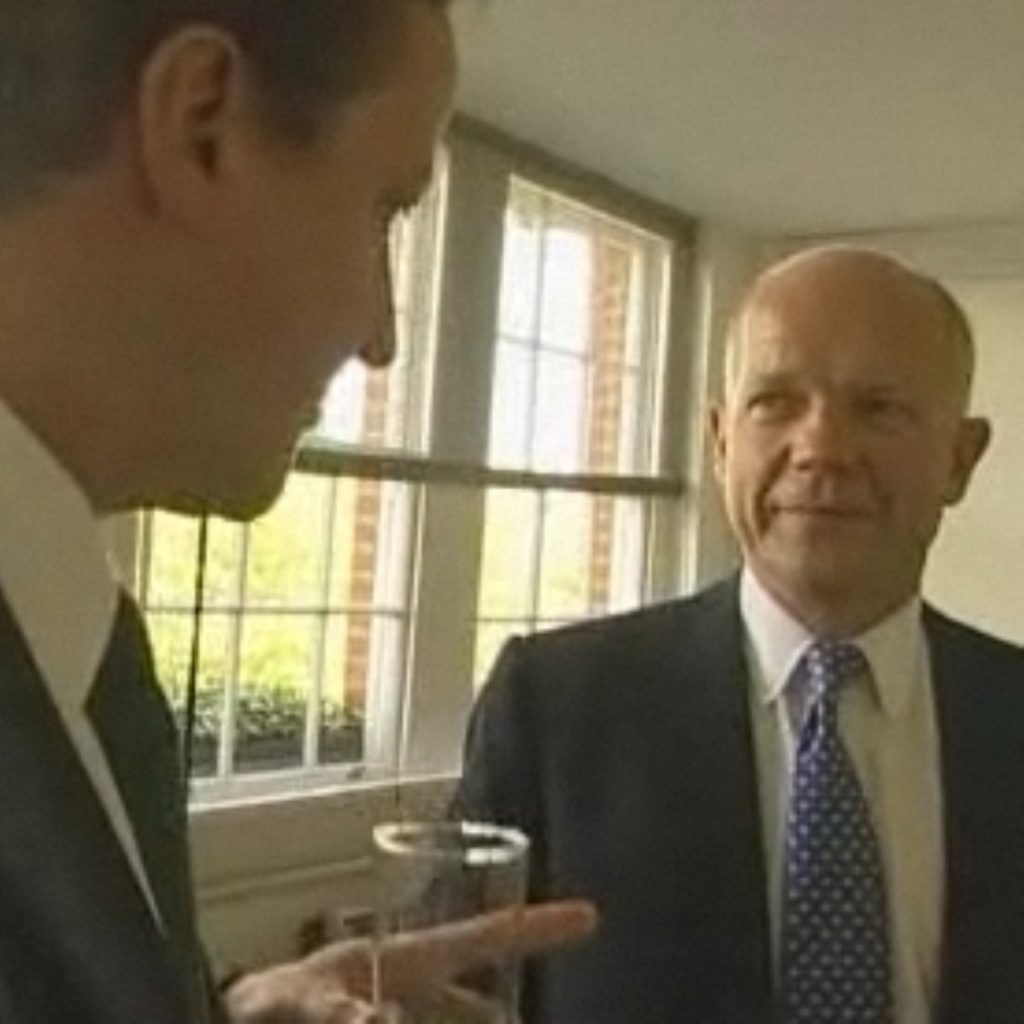The Week in Politics: Dawn of incompetence
The government’s reputation for competance takes a battering and David Cameron enjoys his first ever “worst week”.
By Ian Dunt
There’s a certain point in every prime minister’s career when every week is their ‘worst ever week’. Gordon Brown managed to plough a new course in this regard. At one point, I’m certain there were at least 50 consecutive ‘worst ever weeks’ during his reign in Downing Street.
But that record-setting performance should not blind us to how quickly the coalition government is developing a record for incompetence. This week is the first time anyone used the phrase. And so it begins. David Cameron has had his ‘worst ever week’. It’s official.


Monday in particular was an absolute disaster. The weekend mission to Libya had descended into farce. Foreign secretary William Hague found himself facing widespread criticism for the mission, which he unconvincingly dubbed a “diplomatic” effort.
In the Commons, shadow foreign secretary Douglas Alexander relentlessly mocked him, asking why a diplomatic effort would drop out a helicopter at night. “The British public are entitled to wonder whether, if some new neighbours moved into the foreign secretary’s street, he would introduce himself by ringing the doorbell or instead choose to climb over the fence in the middle of the night,” he said.
It was a tough call for Mr Hague, who quite plainly was not able to say what the mission was really trying to do but nevertheless took full responsibility for it. His performance was laughed at in the Chamber however – an unenviable position for a foreign secretary to be in. By Tuesday there was persistent chatter about resignation, a real change of fortune for a man used to lavish praise from supporters and opponents alike.
Alexander, for all his hostilities, actually stopped well short of calling for Hague’s resignation in what was a well-measured but politically effective response to the week’s events. “I am not calling on him to resign but I am asking him to raise his level of performance,” he said on Question Time.
Over on the diplomatic front, David Cameron was trying to take on the role of international statesman, issuing a joint ultimatum with France calling for action if Col Muammar Gaddafi failed to stop the violence. Both Cameron and Nicolas Sarkozy have tried to appear at the forefront of events – with limited success. France’s decision to unilaterally recognise the rebel leadership prompted irritation and derision in Europe.
Monday’s other big story, Prince Andrew’s ongoing row over his friendship with billionaire sex offender Jeffrey Epstein and his concurrent mateyness with Gaddafi’s son, was even worse for Downing Street. The initial reaction came over the weekend, when press were briefed that the PM would be unmoved by Prince Andrew losing his role as trade envoy. Cue some startlingly quick backpeddling on Monday when it was insisted that Prince Andrew was a marvellous chap and had the “full support” of the prime minister. The full support of the prime minister, of course, is exactly what you get 24 hours before you’re sacked, but as of Friday afternoon, the prince appeared to have survived the controversy.
It was Downing Street’s indecision and hesitancy which made the story so devastating for the prime minister. The weakness in the face of press coverage and the sight of the government reacting to events rather than shaping them prompted many headlines with the word ‘incompetence’ in them. That’s a devastating word. Only some people oppose a particular political view, whatever it may be. Everyone opposes incompetence.

